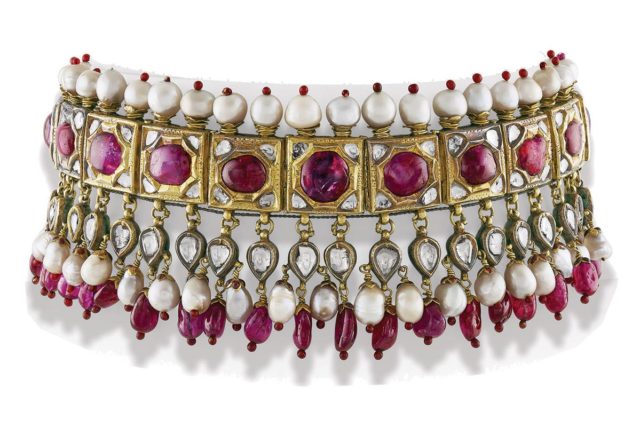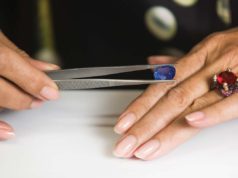Estimated reading time: 5 minutes
In India, jewelry is not only for personal adornment; it’s a reservoir of wealth, a safety net, an insurance policy to be cashed when all other options have failed. Due to this sentiment, the sale of a family’s jewels has always carried an underlying sense of shame. Most (if not all) Indian families that buy jewelry will have a “family jeweler” they trust—the keeper of their secrets, insecurities, and hidden desires—who is considered a valuable member of their ecosystem.
In 2018, stakeholders in India’s premium auction house, AstaGuru, sat around a conference room table discussing whether they should dip their toes into the vintage and antique jewelry segment. Given the social stigma attached to jewelry sales, trusted specialists have always executed transactions behind closed doors on a no-name basis. AstaGuru had already garnered a loyal customer base in the art department, but jewelry was an unknown.

They launched the vertical with a jewelry auction in 2018 and one in 2019. Jay Sagar, jewelry specialist, AstaGuru, explains, “It was tough when we started. Our primary focus was vintage and estate pieces, with resources and
effort on due diligence and plugging into a formidable network of experts to curate a distinctive collection. Initially, families would only share smaller pieces to test the strength of our platform. Vintage jewelry has always been a niche segment in India, with a handful of dealers facilitating transactions. Before the pandemic, our transparent, online auction format-where estimates, prices, and detailed descriptions-are published online was a scary concept for sellers and buyers alike. But that changed in 2020.”
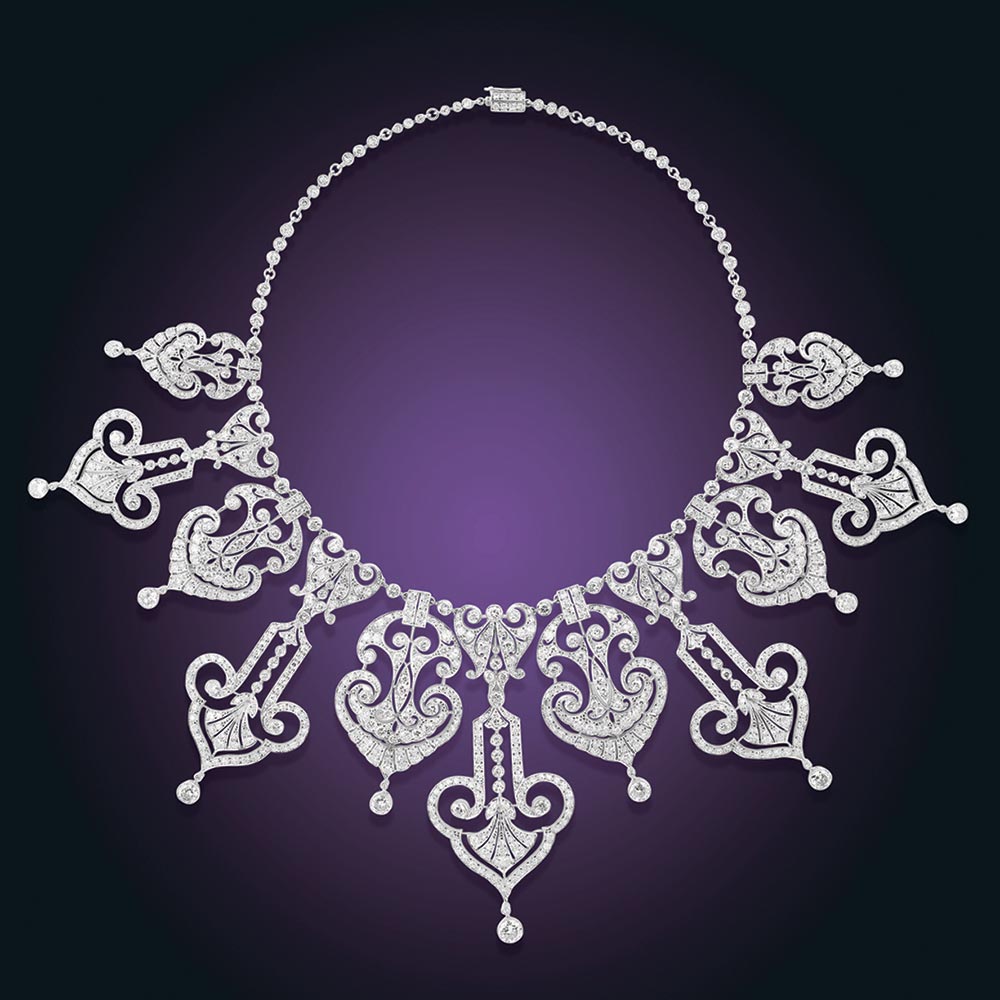
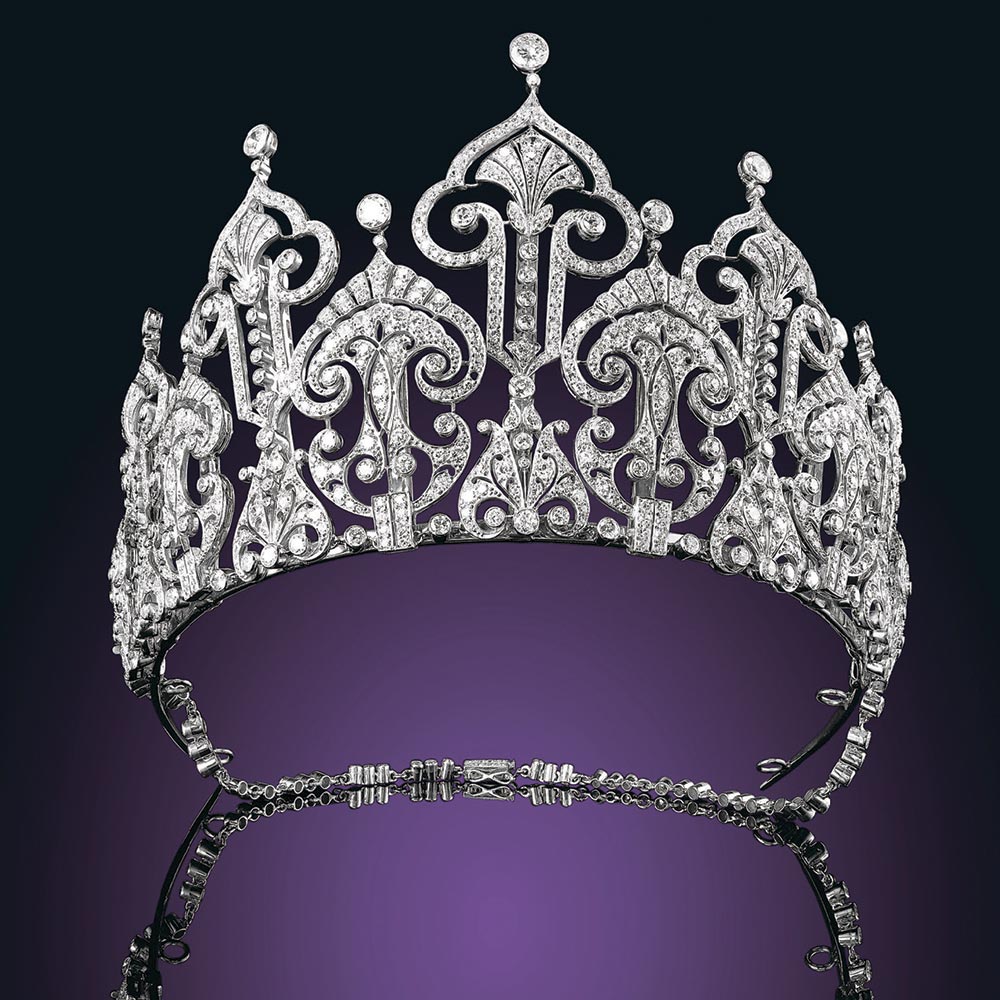
Fear emanating from superstition about an old jewel being a vessel of bad luck kept many away from the vintage jewelry segment in India. However, an era of instant cross-cultural influence fueled by digital media consumption (magnified during the pandemic) has played an active role in smudging geo-cultural boundaries.
As weeks of lockdown in India rolled into months, a pent-up desire to consume jewelry started brewing. For some, it was boredom; others were concerned seeing the rising gold prices. Savings due to significantly reduced celebrations, inability to travel, and an inherent appreciation for precious metal, diamonds and gems led many to seek avenues for acquisition. Sagar adds, “We benchmark ourselves against leading auction players on the global stage. The user experience, whether on our website or social media platforms, is seamless, delivering rich visuals and considerable information within a few clicks.”

But being online was not enough. With their customers stuck at home, unable to attend any viewings, AstaGuru came up with a concierge service, through which vaccinated individuals personally brought jewels to the homes of their regular bidders across the country. Providing their clients with the comfort of examining and wearing jewels (before bidding) without leaving their abode instilled confidence. On the supply side, unable to open their jewelry salons, dealers were more amenable to selling their stock of estate jewelry via AstaGuru’s online auction.
Fear emanating from superstition about an old jewel being a vessel of bad luck kept many away from the vintage jewelry segment in India.
Sagar summarizes, “Our most successful online auction was conducted when India was in the throes of the second wave in April. It was a monumental challenge for our team to keep things moving while also caring for their families. The main source of heritage jewels for us has been families whose children are either not interested in jewelry or prefer more wearable pieces. Interestingly, during the pandemic, we have seen increased engagement from first-time bidders. As a result, AstaGuru will be expanding its jewelry vertical and spending more resources on educating the market, drawing new customers. The current generation of buyers is happy to pay with credit cards, bank transfers, or checks.”
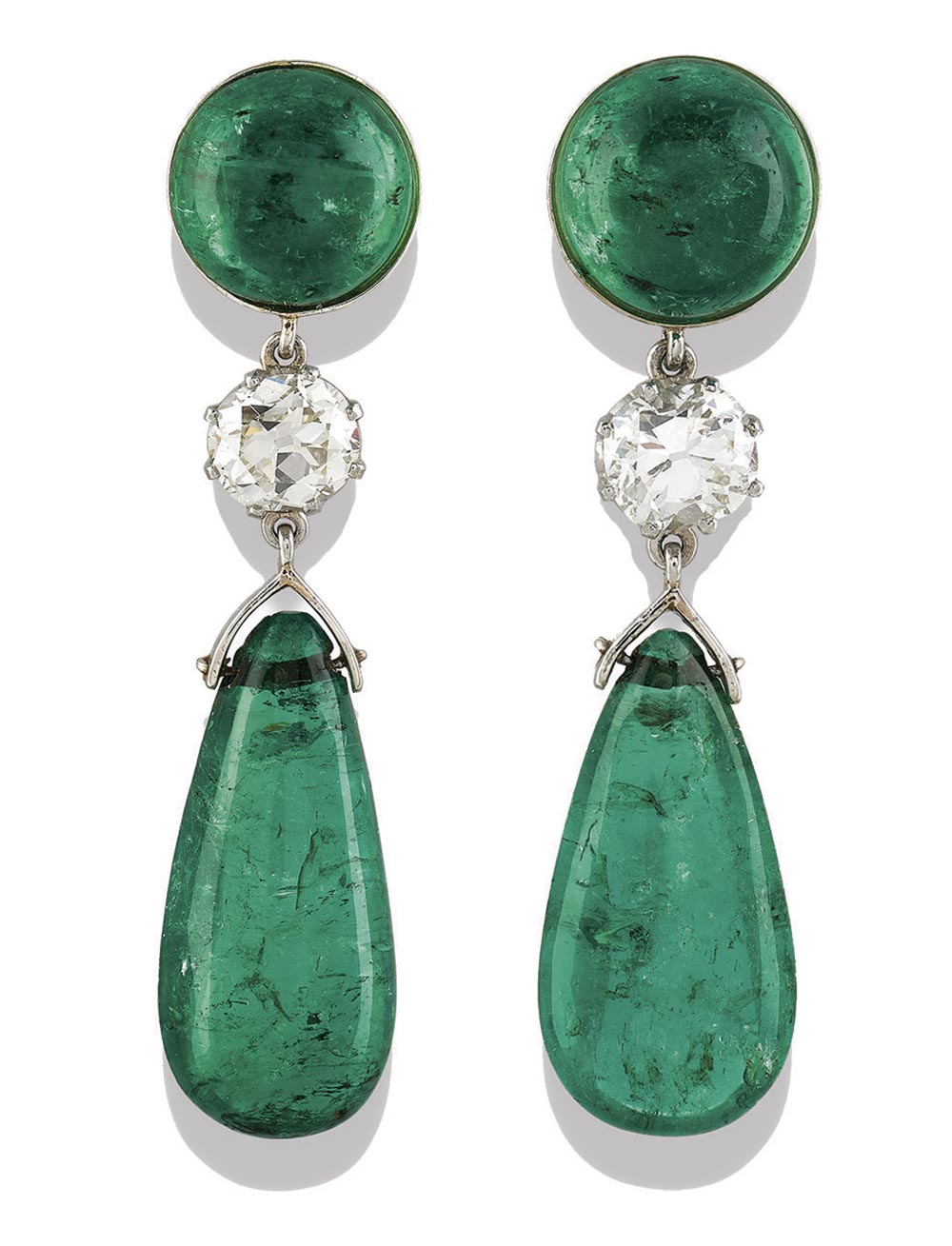
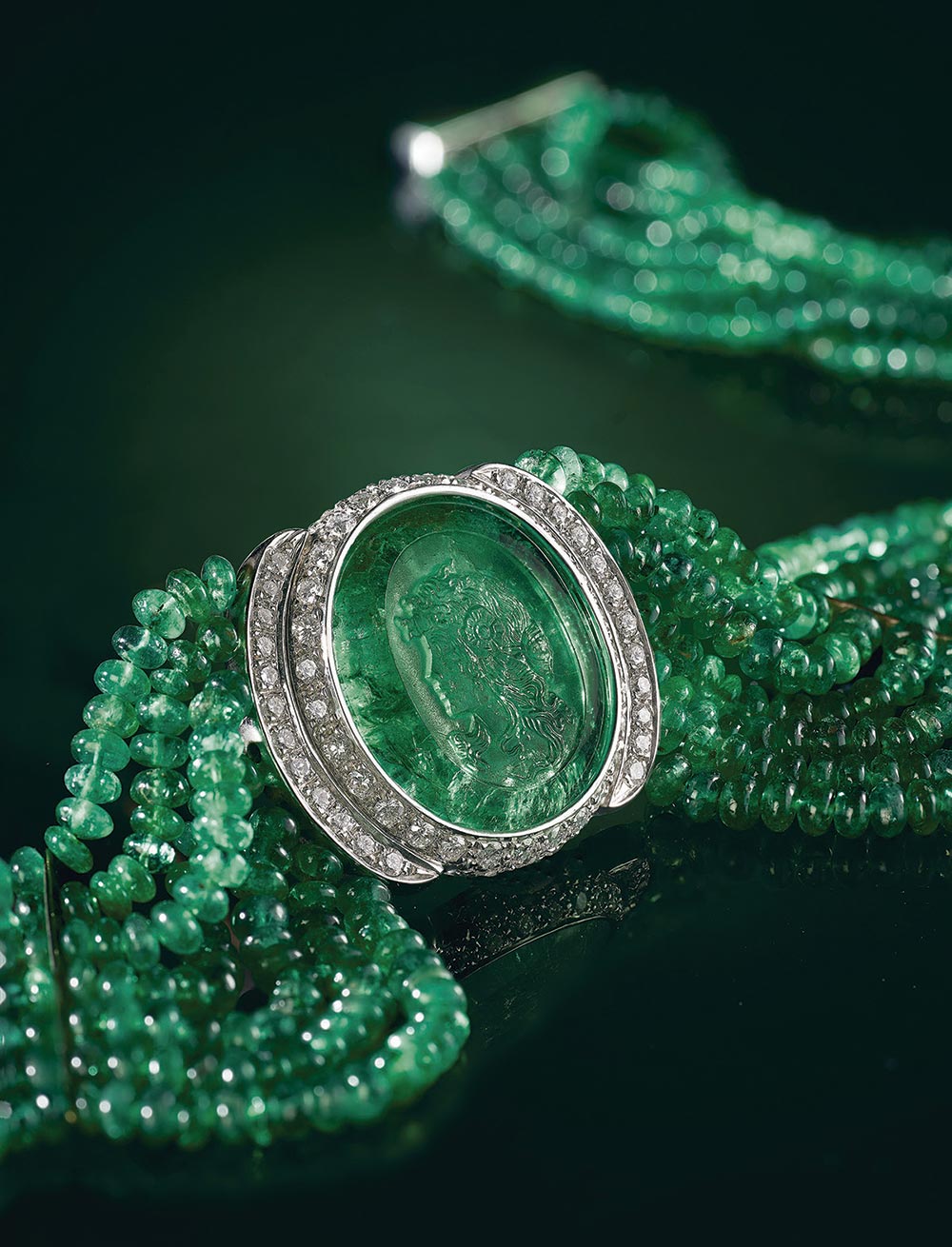
Online jewelry auction is a microscopic segment of the more significant jewelry industry in India. The success of AstaGuru’s online auctions represents a tectonic shift in attitude. For Indians, jewelry is not an accessory, but an intrinsic part of one’s attire, an active participant in ancient ceremonies passed down through the ages that, as per cultural beliefs, continue to underline the journey of a soul in its physical manifestation.
Images are courtesy of AstaGuru



